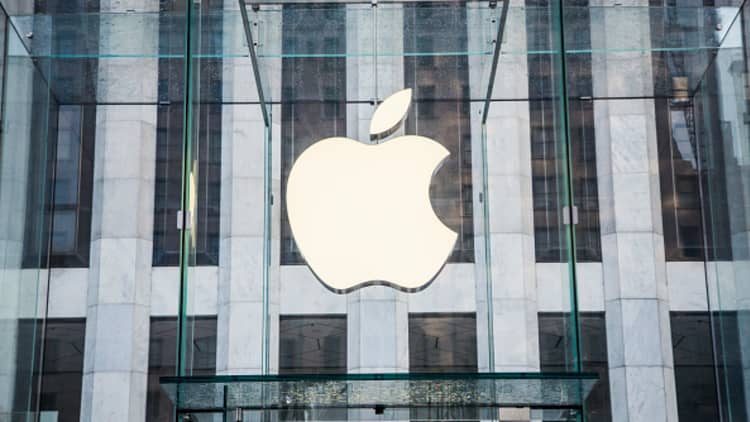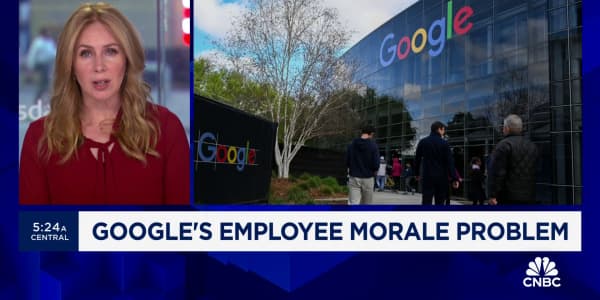Apple is having a great year, and its 4-for-1 stock split on Monday is expected to make the market's most-valuable company even more attractive to a wider universe of retail investors. But the limited history of Apple stock splits says there is no reason to rush in to buy the lower-priced shares.
The technology giant has been on fire.
Apple became the first company to reach a $2 trillion market cap earlier in August, and it eclipsed a $500 price per share. The stock is up roughly 70% this year.
This will be Apple's fifth stock split since going public. The company's previous four stock splits occurred:
- June 9, 2014: 7-for-1
- February 28, 2005: 2-for-1
- June 21, 2000: 2-for-1
- June 16, 1987: 2-for-1
Apple stock split sell-offs
While the split is designed to lower the nominal price per share, split-adjusted Apple stock has a history of short-term sell-offs.
Two weeks after the previous stock splits, shares of Apple have lost an average of 5.6%, trading negatively in all four instances, according to data from hedge fund trading information platform Kensho. That underperforms the Dow Jones Industrial Average, which tends to be a coin flip in these post-Apple stock split weeks. The Dow has eked out a positive gain, on average, trading in the green half the time.
One of the reasons most-often cited for the Apple stock split is its ability to encourage new investors.
CNBC's Jim Cramer said the move was made to create more accessible shares, and he referenced a conversation he had with Apple CEO Tim Cook.
"Tim told me last night, 'Hey, I want more people in the stock,'" Cramer said on "Squawk Box" back on July 31.
While the iPhone maker begins trading on a split-adjusted basis on Monday, Apple announced the 4-for-1 stock split when it released its third-quarter earnings report in late July.
Apple isn't alone among this year's high flyers pursuing a stock split: Tesla will also begin trading at a new price per share after a recently announced stock split Monday.
To be clear, stock splits do not change a company's underlying fundamentals. And though the lower-priced shares can attract smaller investors, larger investors already trading the shares can maintain more influence over the price action. The overall market environment is key, as well, and it has influenced trading after the limited number of previous Apple stock splits.
Sam Stovall, chief investment strategist at CFRA, recently noted that after its last split in 2014, Apple gained 36% over the next year, but after its 2000 split as the tech bubble burst, it lost 60%. Apple already has risen more than 30% since announcing this latest stock split in late July.
The CFRA strategist does expect the Apple split to help keep the marking moving higher, telling CNBC, ""I think we're still going to be basking in the the glow of an accommodative Fed, combined with the increased accessibility of Apple's share price to retail investors."
A longer-term Wall Street bull case for Apple shares is being built on belief in improving business fundamentals. Wedbush's Daniel Ives recently increased his Apple stock price forecast from $515 to $600, citing an upcoming iPhone 12 "supercycle" — over the next 12 to 18 months, roughly 350 million of 950 million iPhones worldwide will be ready for an upgrade.






